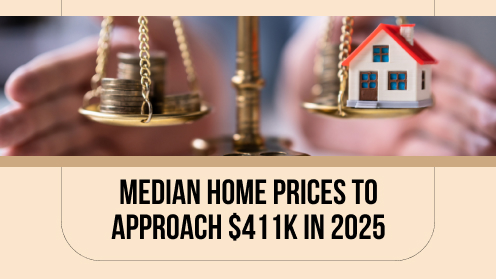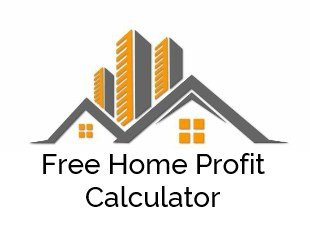The Benefits of Growing Equity in Your Home

Over the last couple of years, we’ve heard quite a bit about rising home prices. Today, expert projections still forecast continued growth, just at a slower pace. One of the often-overlooked benefits of rising home prices is the positive impact they have on home equity. Let’s break down three ways this is a win for homeowners.
1. Move-Up Opportunity
With the rise in prices, homeowners naturally experience an increase in home equity. According to the Homeowner Equity Insights from CoreLogic,
“In the first quarter of 2019, the average homeowner gained approximately $6,400 in equity during the past year.”
This increase in profit means if homeowners decide to sell, they’ll be able to put their equity to work for them as they make plans to move up into their next home.
2. Gain in Seller’s Profit
ATTOM Data Solutions recently released their Q2 2019 Home Sales Report, indicating the seller’s profit jumped at one of the fastest rates since 2015. They said:
“A look at the national numbers showed that U.S. homeowners who sold in the second quarter of 2019 realized an average home price gain since the original purchase of $67,500…the average home seller gain of $67,500 in Q2 2019 represented an average 33.9 percent return as a percentage of the original purchase price.”
Looking at the amount paid when they bought their homes, and then the amount they received after selling, we can see that some homeowners were able to walk away with a significant gain.
3. Out of a Negative Equity Situation
Negative equity occurs when there is a decline in home value, an increase in mortgage debt, or both. Many families experienced these challenges over the last decade. According to the same report from CoreLogic,
“U.S. homeowners with mortgages (roughly 63% of all properties) have seen their equity increase by a total of nearly $485.7 billion since the first quarter 2018, an increase of 5.6%, year over year.
In the first quarter of 2019, the total number of mortgaged residential properties with negative equity decreased…to 2.2 million homes, or 4.1% of all mortgaged properties.”
The good news is, many families have moved beyond a negative equity situation, and no longer owe more on their mortgage than the value of their home.
Bottom Line
If you’re a current homeowner, you may have more equity than you realize. Your equity can open the door to future opportunities, such as moving up to your dream home. Let’s get together to discuss your options and start to put your equity to work for you.

How to Avoid Capital Gains Taxes on Investment Properties
Capital gains on investment properties must be reported in the year of sale unless deferred. Use IRS Code Section 1031 to defer capital gains taxes by exchanging for a similar property.

Balanced Market Ahead: Median Price Approaches $411K
Home prices are expected to increase modestly in 2025, with a forecasted median of $410,700. Inventory will rise slightly, creating a balanced market with more opportunities for buyers in 2025.

Happy April Fool’s Day
Breaking news! Interest rates at pre-pandemic levels, mortgage rates at all-time low, announces Fed. It's a dream come true for homebuyers who have been waiting for the perfect time to enter the market! Dream on… Happy April Fool’s Day!

What’s Shaping the Future of Real Estate?
Rising mortgage rates and economic shifts continue to influence housing affordability and accessibility. Homeowners' insurance costs have surged due to climate risks, prompting state-led policy solutions.

Single & Secure: Financial Planning Tips
Sharing expenses with friends or family, like splitting groceries or carpooling, helps reduce costs. Establishing an emergency fund ensures financial security; aim to save 3-6 months of expenses.

New Year, New Home: Buying & Selling Tips
Start Early: Sellers should begin the process early, evaluating their home and preparing for the market.Home Preparation: Sellers should invest in updates, cleaning, and professional staging to increase appeal.

How Insurance Can Help With Retirement Planning
Long-term care insurance shields retirement funds by covering care costs like home care or assisted living. Cash-value life insurance offers tax-deferred growth, ideal for those maximizing retirement plans and seeking additional savings.

How to Protect Your Belongings With Insurance
Ensure your coverage includes extended or guaranteed replacement cost to cover spikes in repair costs. Don’t skip flood insurance—99% of counties faced flooding between 1996-2019, according to FEMA.
3 buildings in Utah among hundreds of federal properties ‘designated for disposal’
Three federal properties in Utah, including the IRS Service Center in Ogden, the St. George Federal Building, and the Wallace F. Bennett Federal Building in Salt Lake, are among hundreds designated for disposal by the GSA. These buildings are considered “non-core” and...

How Stable Is Utah’s Housing Market?
Utah's housing market has a 20.7% chance of a 5% price drop over the past 25 years, lower than the US 26.4% avg. Since 2000, the median home price ↑ 210%, higher than the national ↑ 196%.

